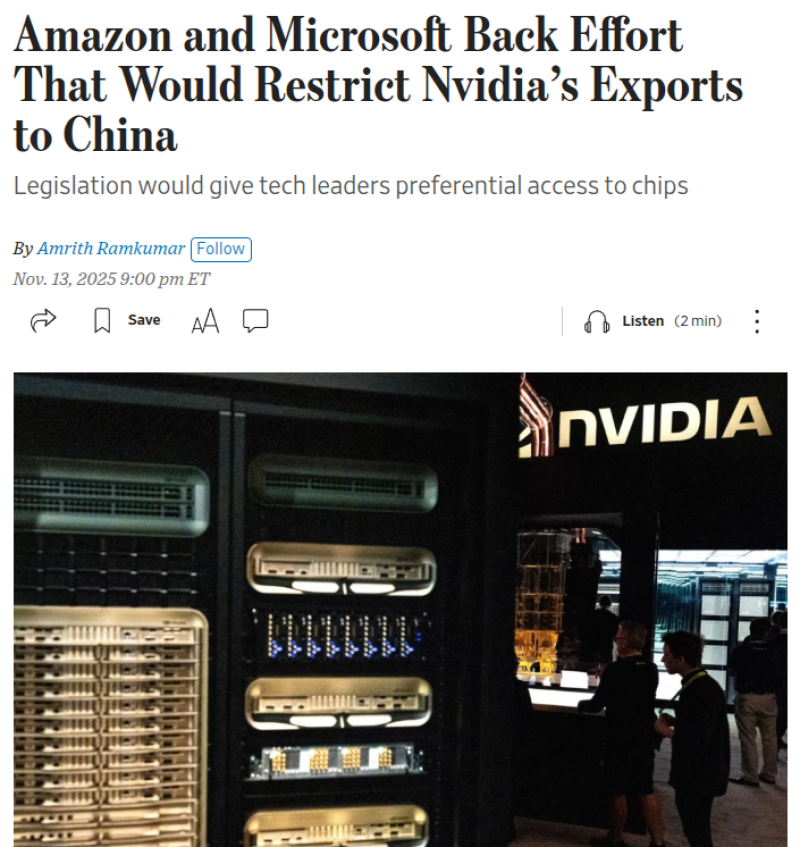A surprising coalition has emerged in the AI hardware sector. Amazon, Microsoft, and Anthropic are backing new legislation that could fundamentally change how the world's most powerful AI chips are distributed. The proposed Gain AI Act targets Nvidia's export practices and seeks to secure American access to critical computing resources during an era of unprecedented AI competition.
Key Details of the Proposed Legislation
The Gain AI Act introduces several provisions that could reshape the AI chip supply chain.

The legislation targets both export priorities and supply chain flexibility for domestic players. Here's what the proposed act would change:
- The Gain AI Act would mandate that AI chip manufacturers, including Nvidia which controls roughly 80% of the global AI processor market, must satisfy U.S. domestic demand before shipping high-end GPUs to China and other embargoed regions.
- This represents a significant policy shift, particularly since Amazon and Microsoft rank among Nvidia's biggest customers yet are supporting measures that would limit the chipmaker's ability to serve one of its fastest-growing markets.
- The legislation includes a carve-out for "trusted" companies like Amazon, Microsoft, and select AI research labs, allowing them to move chips between regions without waiting for individual export licenses. This provision would give these firms greater supply flexibility and security during a period of intense competition for computing power.
- The proposal could constrain China's capacity to develop frontier AI models by restricting access to cutting-edge accelerators, while simultaneously strengthening the supply position of U.S. cloud providers that already control most global data center infrastructure.
- The backing from Amazon, Microsoft, and Anthropic provides lawmakers with compelling evidence that GPU scarcity remains a pressing concern. These companies maintain that congressional intervention is necessary to protect domestic supply chains. Meanwhile, Nvidia and other semiconductor manufacturers argue that power constraints and data center infrastructure limitations, rather than export policies, represent the actual bottlenecks. They warn that additional restrictions might backfire by motivating China to accelerate its independent semiconductor development efforts.
Market and Strategic Implications
The coalition supporting the Gain AI Act signals a fundamental transformation in how major tech companies view AI computing infrastructure. Cloud hyperscalers now treat AI compute capacity as a strategic national resource rather than simply a commercial commodity. This shift suggests that the trajectory of global AI development will increasingly be shaped not only by technological breakthroughs but also by policy frameworks governing the international movement of advanced chips.
Whether the Gain AI Act ultimately becomes law remains uncertain, but the alignment of these industry giants behind it demonstrates how the competitive landscape for AI hardware has evolved. The legislation reflects growing recognition that control over AI chip supply chains carries significant economic and national security implications.
 Eseandre Mordi
Eseandre Mordi

 Eseandre Mordi
Eseandre Mordi


